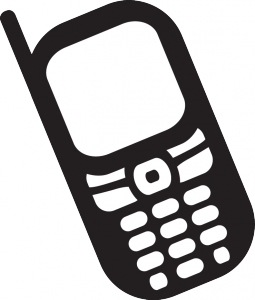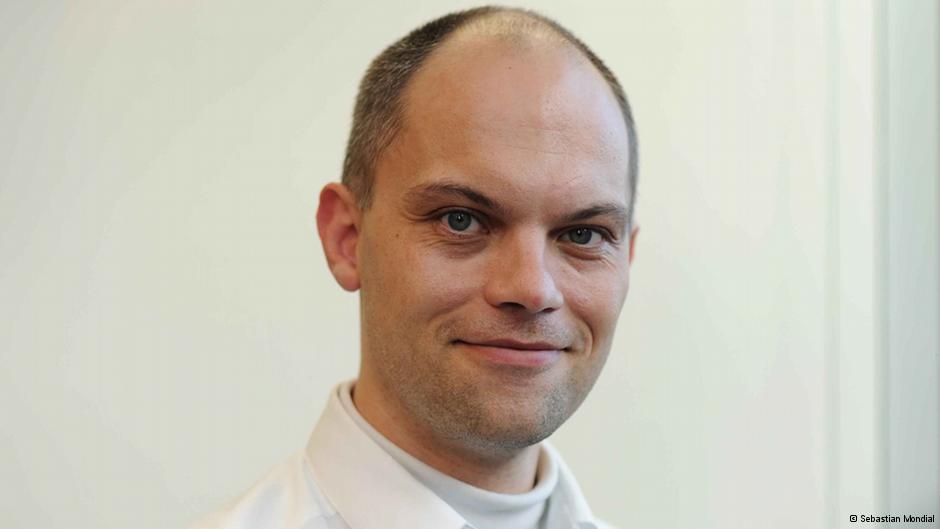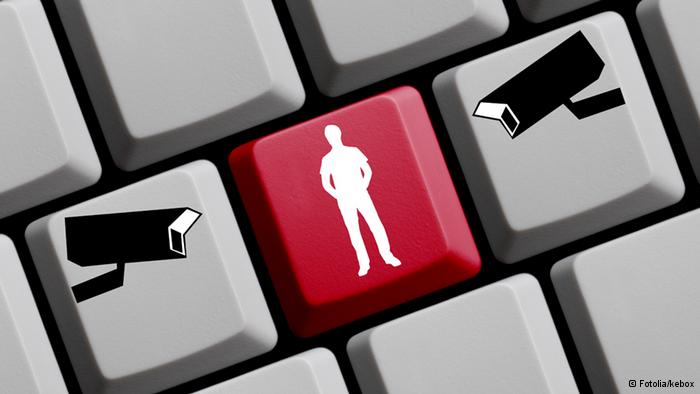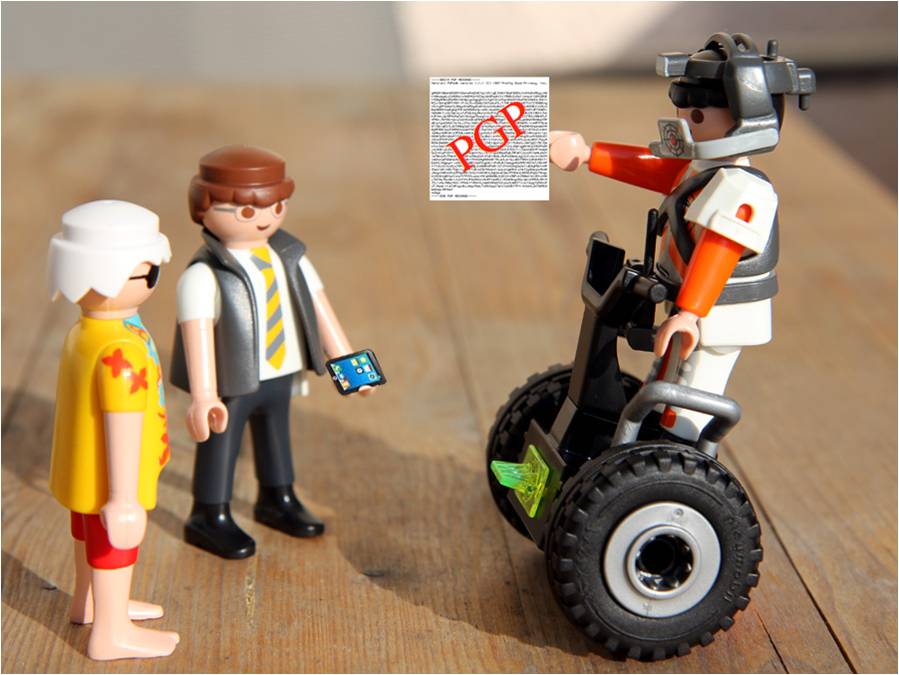10 essential tips to teach digital safety for journalists
The NSA spying scandal is continuing to make headlines, and the recent news about the severe safety loopholes exposed by Heartbleed is frightening. And yet for many the threat remains worryingly rather abstract.
A recent survey in Germany found that the vast majority (75 percent) of Germans have not changed their behavior when it comes to personal data. Every second person still believes they have nothing to hide. Even if journalists have become more sensitized to digital safety, most still don’t know what PGP or OTR means. The topic is however of the utmost importance, not only to protect journalists themselves, but more importantly, their sources.
This is precisely the reason why the DW Akademie organized an open online workshop on digital safety last December. The topic is also now an integral part of Deutsche Welle’s own journalism training.
The biggest challenge by far is not about teaching and demonstrating tools, but rather to convince journalists to actually change their behavior and the way they communicate.
Journalism training has to be carefully reconsidered, says DW Akademie’s Steffen Leidel. Here are Steffen’s digital safety training tips for journalists presented during his talk at the International Journalism Festival in Perugia.
![]() read more
read more
Yet again, studies show how revealing phone data is

Icon by Anubisza
Many governments agencies around the world collect communications data as a matter of course. In the past, governments have downplayed privacy concerns around this data collection by emphasizing that they don’t collect the actual content of communications but rather so-called “metadata” – that is, the number called, what time the call was made, how long the call was and where the call was made from. A number of recent studies have demonstrated, yet again, that this metadata can be incredibly revealing.
And this is where journalists need to pay attention because if they want to keep a story they’re investigating under wraps or protect contacts, they need to understand how their metadata can be used to discover their activities and movements.
![]() read more
read more
The risks of using Skype, Facebook, WhatsApp and Co.

Graphic: flickr/mmapstone
Most reporters use a whole bunch of different online tools and apps such as Skype, WhatsApp, Facebook, Gmail, Tumblr, Blogger, WordPress and Dropbox to make their work easier. To commemorate this year’s Safer Internet Day, onMedia highlights a few risks associated with some of the most popular journalism tools and suggests possible, more secure alternatives.
![]() read more
read more
Secure collaboration among journalists: tips from an expert
 Sebastian Mondial was one of the first journalists entrusted with millions of leaked offshore tax files. Because of the sensitive nature of the information – which involved the secret financial transactions of individuals from corrupt politicians and international arms dealers to millionaires and middle-class professionals – secure communications among those involved in the investigation was of the utmost importance. The ensuing collaboration, involving nearly 100 journalists from 40 countries, was probably the largest in journalism history
Sebastian Mondial was one of the first journalists entrusted with millions of leaked offshore tax files. Because of the sensitive nature of the information – which involved the secret financial transactions of individuals from corrupt politicians and international arms dealers to millionaires and middle-class professionals – secure communications among those involved in the investigation was of the utmost importance. The ensuing collaboration, involving nearly 100 journalists from 40 countries, was probably the largest in journalism history
Mondial was pivotal in setting up the communication channels and ensuring that the information exchange avoided surveillance. In the following guest post for onMedia, he gives some tips on how to protect communications from snooping eyes while still keeping the information flowing.
![]() read more
read more
DW Akademie panel discussion in Berlin: Digital Safety for Journalists
Everything from the very real threats journalists face from internet surveillance, to losing control of personal data through mobile messaging applications were all canvassed at DW Akademie’s Digital Safety for Journalists panel discussion at the ARD-Hauptstadtstudio in Berlin.
Joining DW Akademie’s Holger Hank on the panel were Anne Roth (Tactical Technology Collective), Zahi Alawi (DW Akademie), Malte Spitz (German Greens Party), John Goetz (NDR) and William Echikson (Google).
Along with discussing the need for media organizations to be proactive and train journalists to use encryption and secure digital communications, the data retention policies of governments and technology firms, and how the internet should be controlled were also lively debated.
![]() read more
read more
John Goetz: “Secret services don’t work well”
 It was a few blurred spots on Google Maps that sparked the curiosity of investigative journalist John Goetz and his colleague Christian Fuchs. They wondered what was being hidden in Germany from the public eye. Several years of in-depth research later, they had their answer: they discovered US agencies were coordinating part of the war on terror from German soil, including the drone war against Africa.
It was a few blurred spots on Google Maps that sparked the curiosity of investigative journalist John Goetz and his colleague Christian Fuchs. They wondered what was being hidden in Germany from the public eye. Several years of in-depth research later, they had their answer: they discovered US agencies were coordinating part of the war on terror from German soil, including the drone war against Africa.
Goetz, who currently works for the German public broadcaster NDR and the Süddeutsche Zeitung newspaper, has continually come up against secret services in his investigations. He helped expose the locations of CIA secret prisons in Europe as well as the secret service bumbling that led to the US using false intelligence from the Iraqi defector known as “Curveball” (who still lives in Germany) to justify the Iraqi war. “The essence of journalism is to show if a country is living a national lie” is one of Goetz’s mottos.
In his most recent coup, Goetz met with one of the world’s most wanted men, NSA whistleblower Edward Snowden. And despite, or perhaps because of his investigations into the activities of the US secret services, Goetz has a relaxed attitude to potentially being under surveillance.
“Secret services don’t work well,” he says in an interview with onMedia.
![]() read more
read more
Staying safer online – our best of digital safety list

Photo: flickr/CyberHades
DW Akademie devoted the whole of the week December 2- December 6, 2013 to the issue of Digital Safety for Journalists. As well as live online sessions on the topic, we also tackled issues on our digital safety blog important to reporters who want to or need to keep their activities away from prying eyes. Here is a list of some of the posts that can put you on the road to a more secure digital life.
![]() read more
read more
Hiding your online identity: Trialing Tor in Cambodia

Photo: flickr/WarzauWynn
All of this week, DW Akademie is exploring the topic of digital safety for journalists in a free open online workshop with live panel discussions and online sessions. Follow this link to participate in the live sessions from December 2 to 6. There you’ll also find more digital security posts like this one by journalist Kyle James, who takes the anonymous surfing tool Tor on a test drive in Cambodia.
Keeping your identity anonymous on the Internet can have major advantages. If you’re a political activist living in a country with a repressive regime, disguising your Internet identity might just keep you out of jail, and alive. Alternatively, if you’re a reporter working on a story your government doesn’t approve of, surfing anonymously can help you bypass your country’s censorship or filters.
One of the best known and easy-to-use systems for doing this is Tor. But Tor has some disadvantages – many complain it slows down their surfing. So what happens when you use it somewhere like Cambodia that already has slow internet?
![]() read more
read more
Get smart about getting hacked!

Watch out! Someone could be spying on you
When hackers broke into AP’s Twitter account earlier in 2013, their fake tweet about Barack Obama being injured in an explosion at the White House caused the US stock market to plunge. Just before the Twitter account was hacked, AP staffers had received an email asking them to click on a link that supposedly went to a Washington Post article.
Although it looked legitimate, the email was actually a phishing attack (view the email here). The fraudulent link redirected the recipients to a bogus site where they were asked for their login credentials. At least one person fell for the phishing email and gave the hackers, the Syrian Electronic Army, the password they needed to tweet in AP’s name.

In this case, the incident proved more embarrassing than damaging – the tweet was corrected immediately and the stock market recovered within minutes.
But falling for a phishing attack can have much more serious repercussions.
![]() read more
read more
Journalism under surveillance
Are you using any encryption tools or doing anything to protect your files, email and contacts on your computer or mobile phone?
As we find out more about the internet surveillance activities of the US National Security Agency, it’s clear that journalists and media organisations are among the targets of intelligence gathering agencies.
“Encrypt everything.”
That was one of the take home messages of Hauke Gierow’s talk on journalism and surveillance at this week’s Social Media Week Berlin.
![]() read more
read more










Feedback